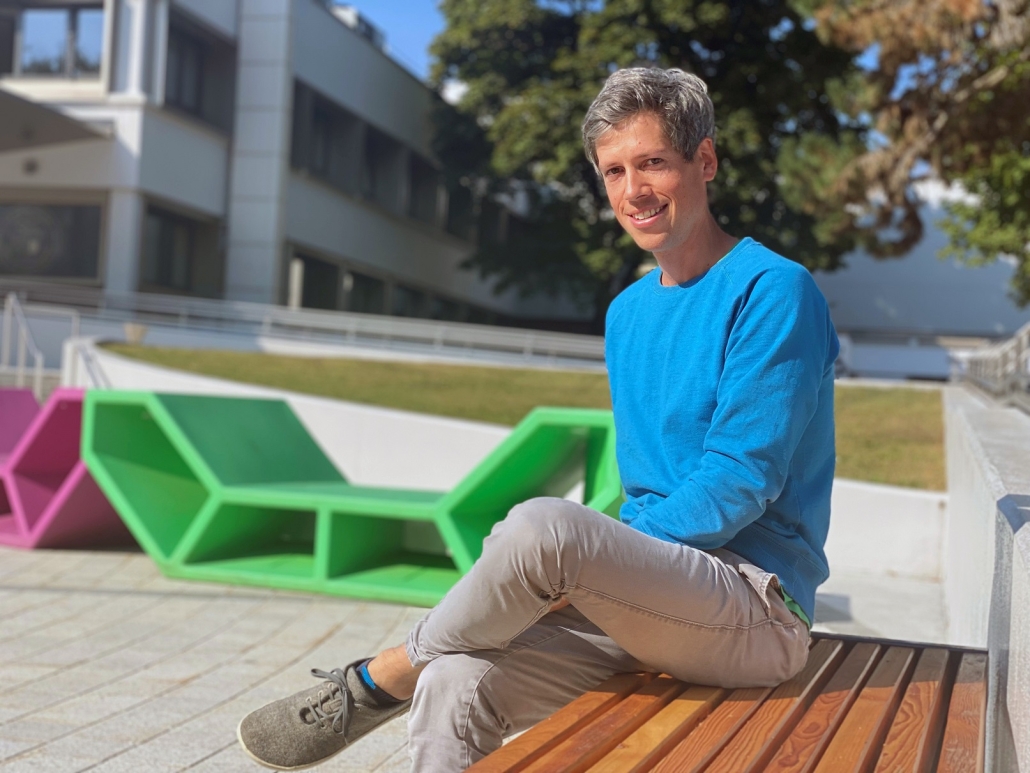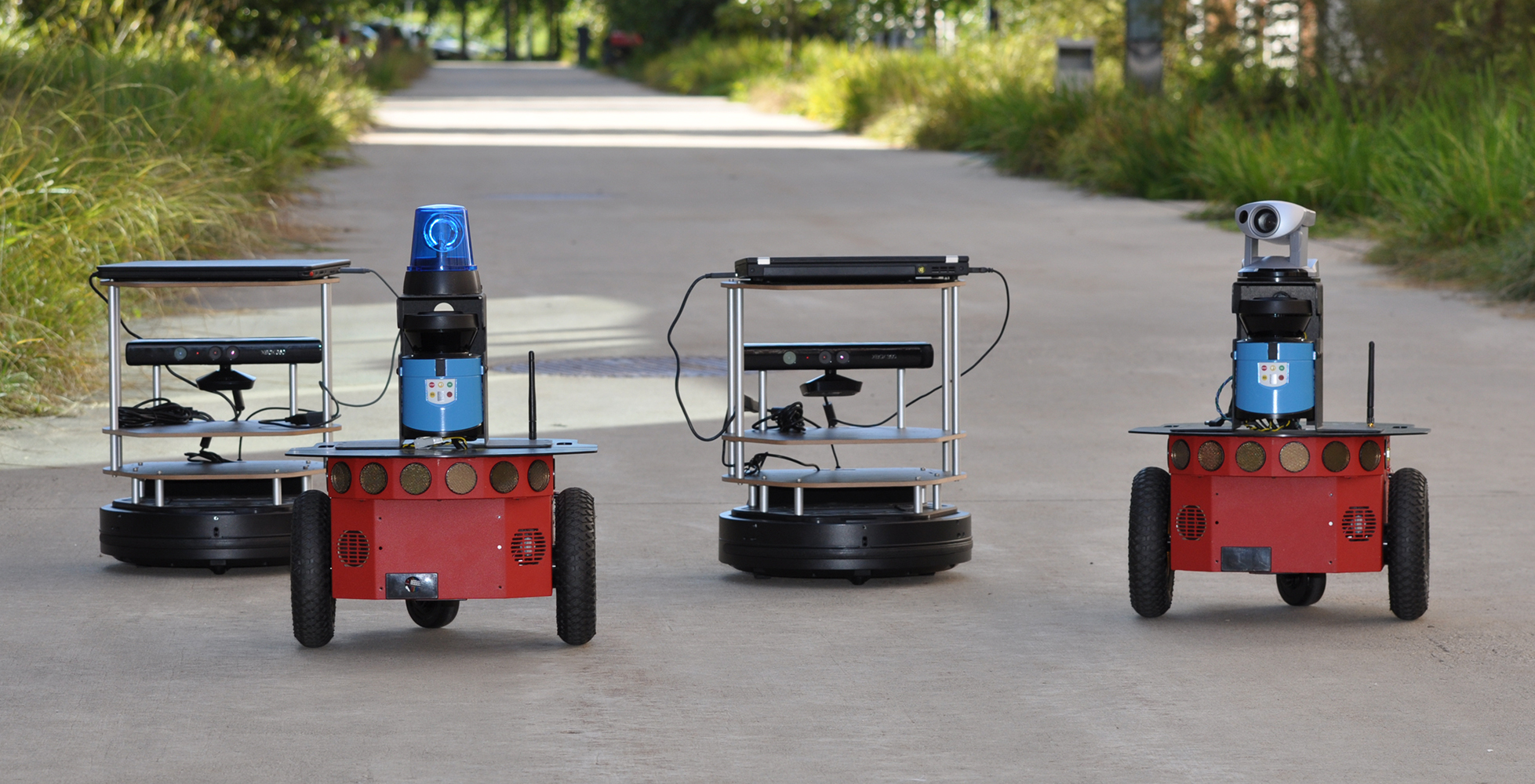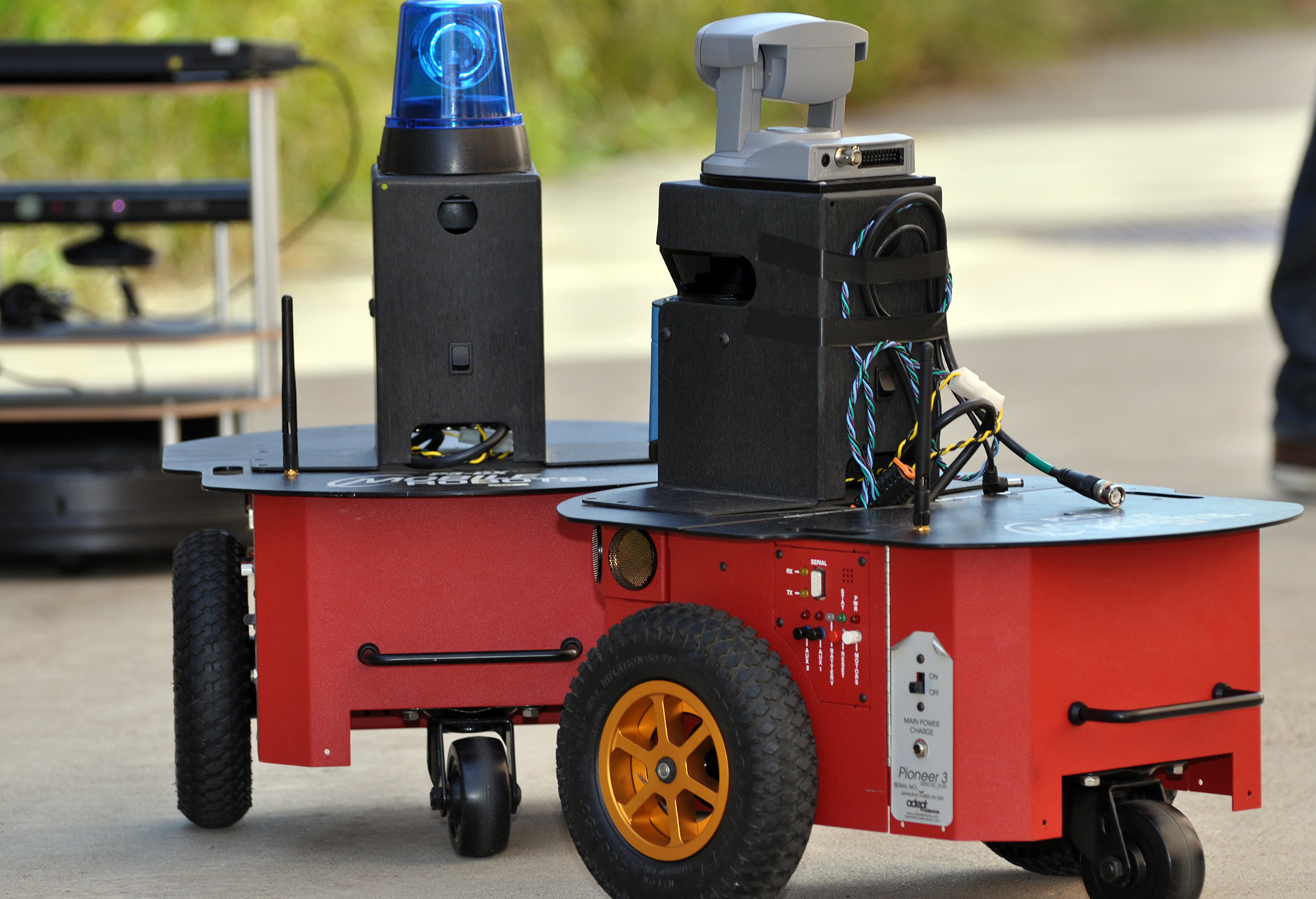Teams of robots that don’t run out of energy
Let’s imagine a large region affected by an earthquake that needs to be combed for missing persons. Because buildings remain at risk of collapsing, this is a task that is particularly well-suited to robots. Micha Sende addressed this kind of scenario in his doctoral thesis. Written by Romy Müller for the University of Klagenfurt. Feature photo by Romy Müller. “What is special about this is that all the robots have the same role, in other words, no-one acts as coordinator,” Micha Sende explains. His research focuses on energy autonomy, asking questions such as: How much energy do I have left? How much energy do I still need to complete a specific task? How long can I continue to work, and when do I need to recharge? Which charging station should I head for, and which one is free at the moment? When asked what makes this task rather complex, Micha Sende answers: “A robotic lawnmower or a robotic vacuum cleaner have a comparatively easy job. They know the territory and they usually work alone, not …


